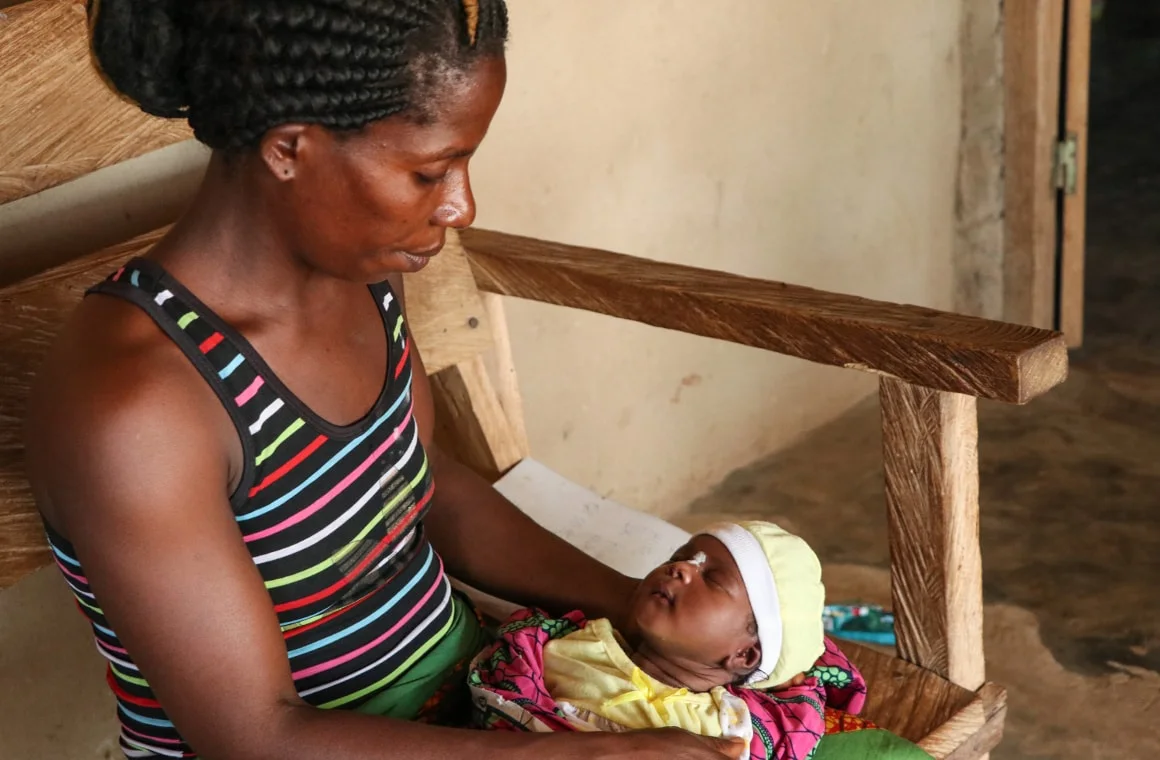Progress blog
A TRANSFORMATIVE PARTNERSHIP FOR EDUCATION IN CÔTE D'IVOIRE
By Mbalo Ndiaye, Country Lead for Côte d'Ivoire, Cocoa Life, Mondelēz International- 05/29/18
At Cocoa Life, we believe education is a key component to a sustainable cocoa supply chain; increasing cocoa farmers' knowledge and capacity leads to improved farming practices, productivity and cost effectiveness. Children are our future-and education is critical to helping them thrive. Unfortunately, the situation in cocoa communities is far from ideal. To address this, we are partnering with the Jacobs Foundation's Transforming Education in Cocoa Communities (TRECC) program. Together, we are cultivating a stronger future for generations to come, starting in Côte d'Ivoire-the largest cocoa-producing country in the world. Below are highlights from my chat with Irina Hotz, Project Manager International Programs at the Jacobs Foundation.
Read more on
Mbalo Ndiaye: Since 2013, when we first launched Cocoa Life in Côte d'Ivoire, I have had the opportunity to work directly with cocoa farmers and their families. I've seen and learned quite a bit about their lives. When it comes to education, there are many issues. In particular, as the student-to-teacher ratio has become higher, quality has suffered. And in remote areas, schools are not as easily accessible. Can you share a bit more about these challenges from your experience with TRECC?
Irina Hotz: Yes, the situation is challenging. The government has actually been pushing to provide universal access to education and, as a result, more than 90 percent of children in Côte d'Ivoire now go to school. While this is a great achievement, unfortunately, there are still learning barriers. Despite attending school daily, many students can barely read. Several factors contribute to this, such as poor teaching quality and school management. Some children are malnourished or have diseases that affect learning capacity. Other children start school late because parents can't afford school supplies or rely on their kids to help on the farm and other household chores.

That's why quality education is so crucial and remains the core focus of TRECC. Ultimately, it enables men, women and children to more effectively contribute to local community development and realize their full potential-socially, personally and economically. Beyond building knowledge and skills, it also helps individuals move out of poverty and has a trickle-down impact on issues like health and child labor.
Mbalo Ndiaye: Education is absolutely a key factor in preventing child labor, which is a cross-cutting theme for the program. When children are at school, they are not working on the farm. When cocoa farmers are educated, they increase productivity and no longer depend on children for help on the farm. We have also found thatf when women are educated, they take on more leadership roles in their households and communities-and as a result, prioritize their children's education and well-being. It's all connected.
Cocoa Life integrates education and skill development as part of its holistic approach, involving community leaders, women associations, farmer groups, non-government associations, teachers and local government agencies in the action plan process. We've contributed our learnings toward industry-wide initiatives like CocoaAction. Partnering with TRECC was a natural step forward, as our strategic objectives were already aligned. What are your thoughts on the partnership?
Irina Hotz: Working with Cocoa Life came naturally for us as well. Our ultimate goal is to see healthy, striving and prosperous cocoa communities, with safe environments for children and youth to pursue their dreams. We're collaborating with governments for policy change, with civil society in strengthening innovation capacity and key players like Mondelēz International in the cocoa industry to transform local and global practices.
Cocoa Life is one of the most active and innovative programs in the industry. As one of TRECC's first private sector partners, Cocoa Life fully embraced our unique partnership as a way to learn and we truly value how engaged the team has been. We see the program continuously challenges itself to not only focus on the supply chain and cocoa farmers, but also address broader family and community systems.
Mbalo Ndiaye: We are honored to be involved in TRECC, focusing on Early Childhood Development (ECD) by building schools, offering quality education and adult education for parents of young children. To date, five out of 15 ECD centers have been built in Côte d'Ivoire, serving around 250 children. By end of 2018, we will complete construction of 10 other centers. Separately, we have been working to improve the quality of education, health and sanitation services, training headmasters in 15 primary schools and producing canteens for about 2,600 children.
It's exciting to see some early results-including a huge improvement in the retention of children in kindergarten by nearly 98 percent. We've also seen positive results in adult functional literacy. Nearly 85 percent of women started learning how to write and make simple calculations. While these outcomes are encouraging, we know there is still more to do and we look forward to continued work with TRECC to help scale up efforts.
Irina Hotz: I agree. This is great progress and we need to continue relentlessly. While others in the cocoa industry have started to realize the importance of quality education, more coordinated action is needed. In order for a supply chain to be truly sustainable, it must serve the individuals and communities that provide for it. Through TRECC's work with Cocoa Life, we hope to drive real impact and gain additional support for quality education in the cocoa and chocolate supply chain and beyond.